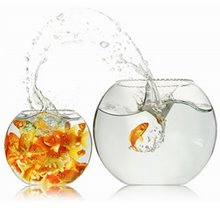These principles were created for EXPO 2000: the World's Fair. I have a lot to say about them, but that will take some time. They are amazing principles for designers to use to adapt their work towards sustainable ends. "Designers" include all those who change the environment with the inspiration of human creativity. To me, these principles aren't something that would be nice to follow, they are necessary. Here they are:
1. Insist on the rights of humanity and nature to co-exist in a healthy, supportive, diverse and sustainable condition.
2. Recognize interdependence. The elements of human design interact with and depend upon the natural world, with broad and diverse implications at every scale. Expand design considerations to recognize even distant effects.
3. Respect relationships between spirit and matter. Consider all aspects of human settlement including community, dwelling, industry and trade in terms of existing and evolving connections between spiritual and material consciousness.
4. Accept responsibility for the consequences of design decisions upon human well-being, the viability of natural systems and their right to co-exist.
5. Create safe objects of long-term value. Do not burden future generations with requirements for maintenance or vigilant administration of potential danger due to the careless creation of products, processes or standards. (What will we do with the radioactive waste from our nuclear power plants over the next 10,000 years?)
6. Eliminate the concept of waste. Evaluate and optimize the full life-cycle of products and processes, to approach the state of natural systems, in which there is no waste.
7. Rely on natural energy flows. Human designs should, like the living world, derive their creative forces from perpetual solar income. Incorporate this energy efficiently and safely for responsible use.
8. Understand the limitations of design. No human creation lasts forever and design does not solve all problems. Those who create and plan should practice humility in the face of nature. Treat nature as a model and mentor, not as an inconvenience to be evaded or controlled.
9. Seek constant improvement by the sharing of knowledge. Encourage direct and open communication between colleagues, patrons, manufacturers and users to link long term sustainable considerations with ethical responsibility, and re-establish the integral relationship between natural processes and human activity.
As I find examples, I will relate them back to these principles so we can see them in practice.
September 6, 2008
Subscribe to:
Post Comments (Atom)





No comments:
Post a Comment